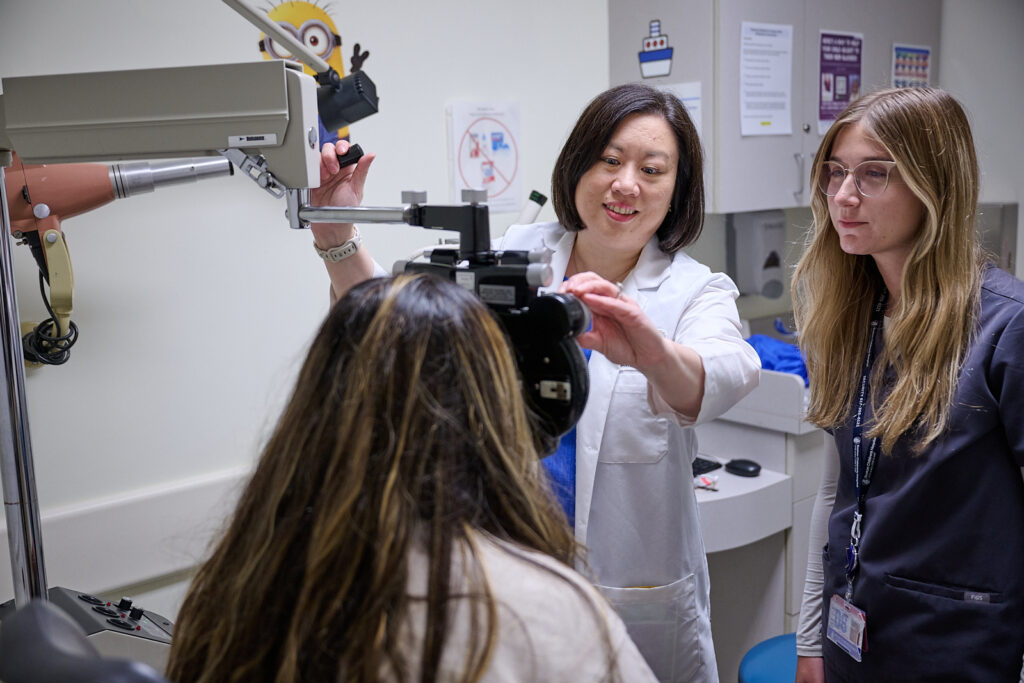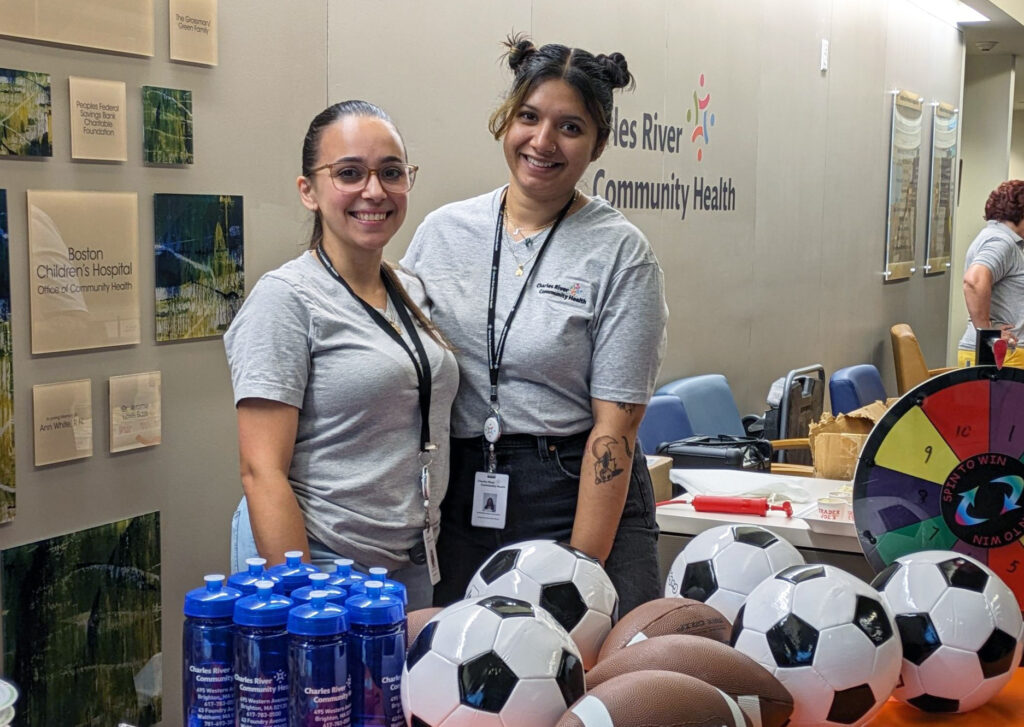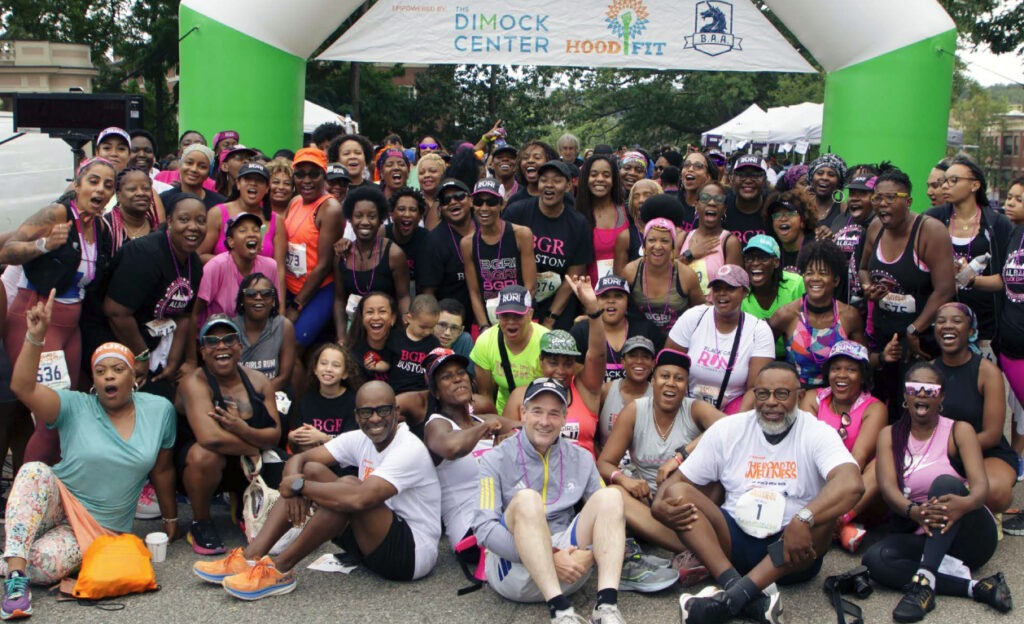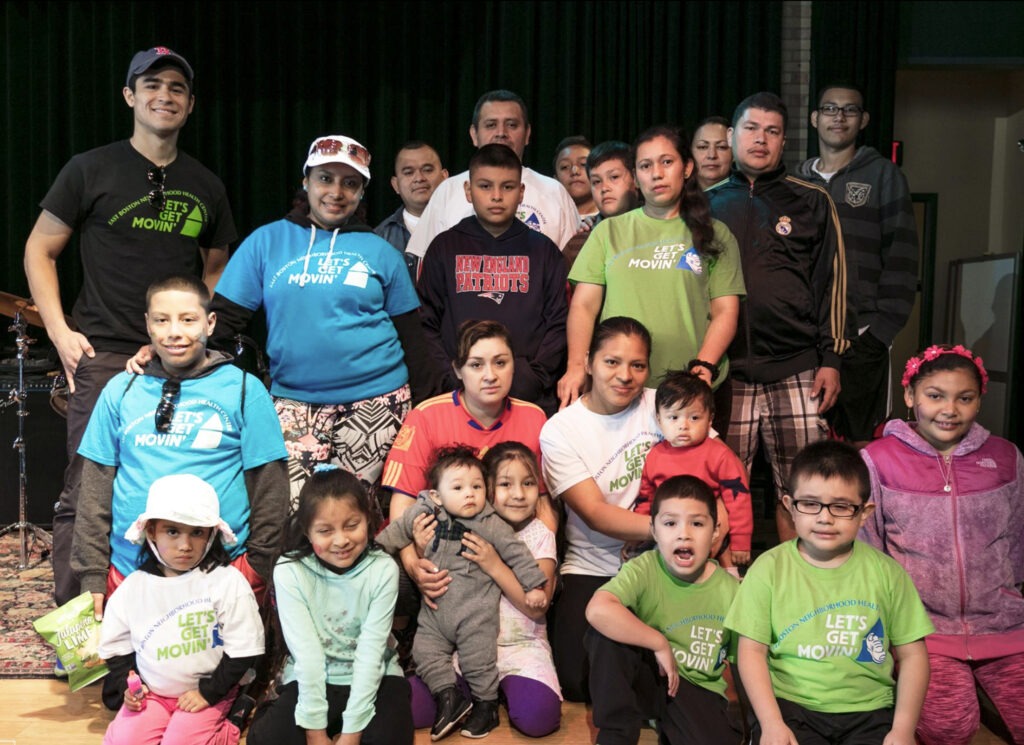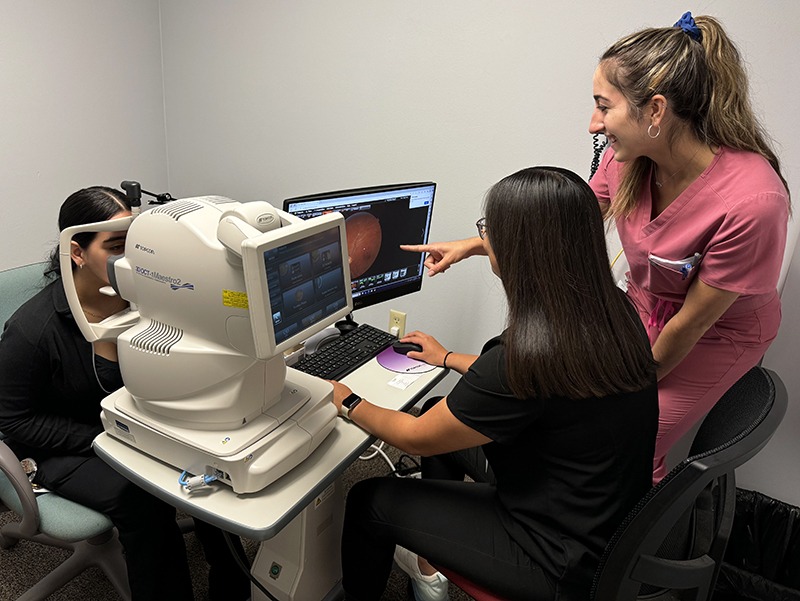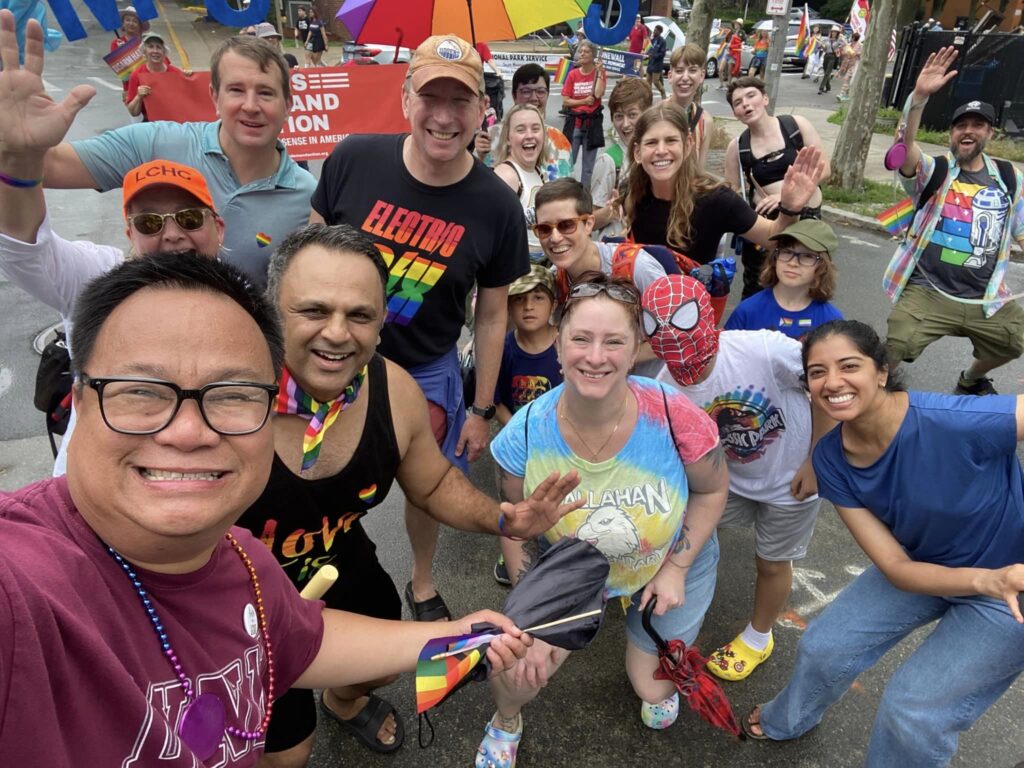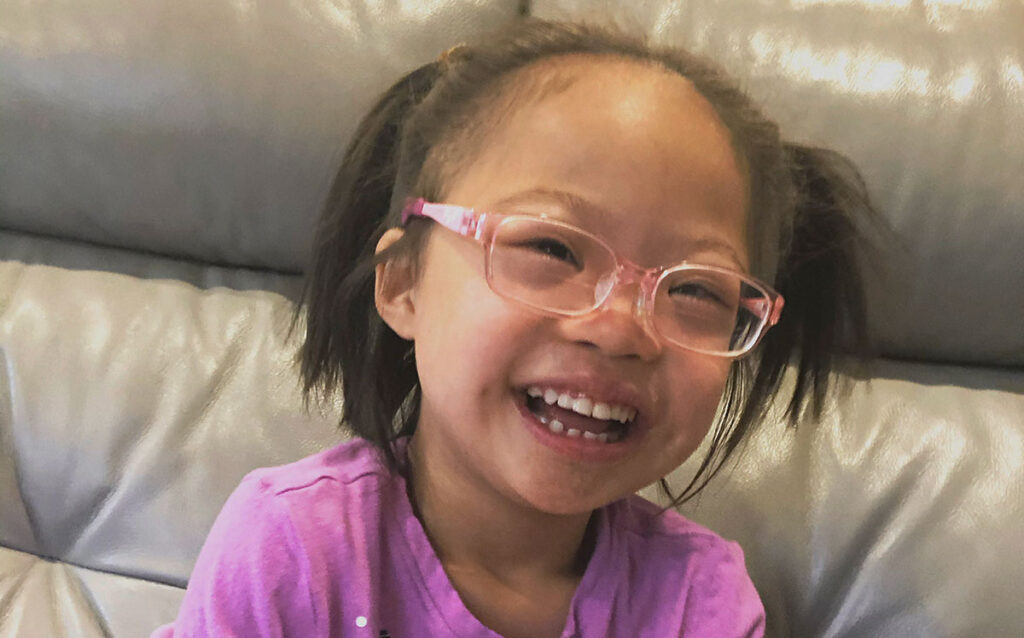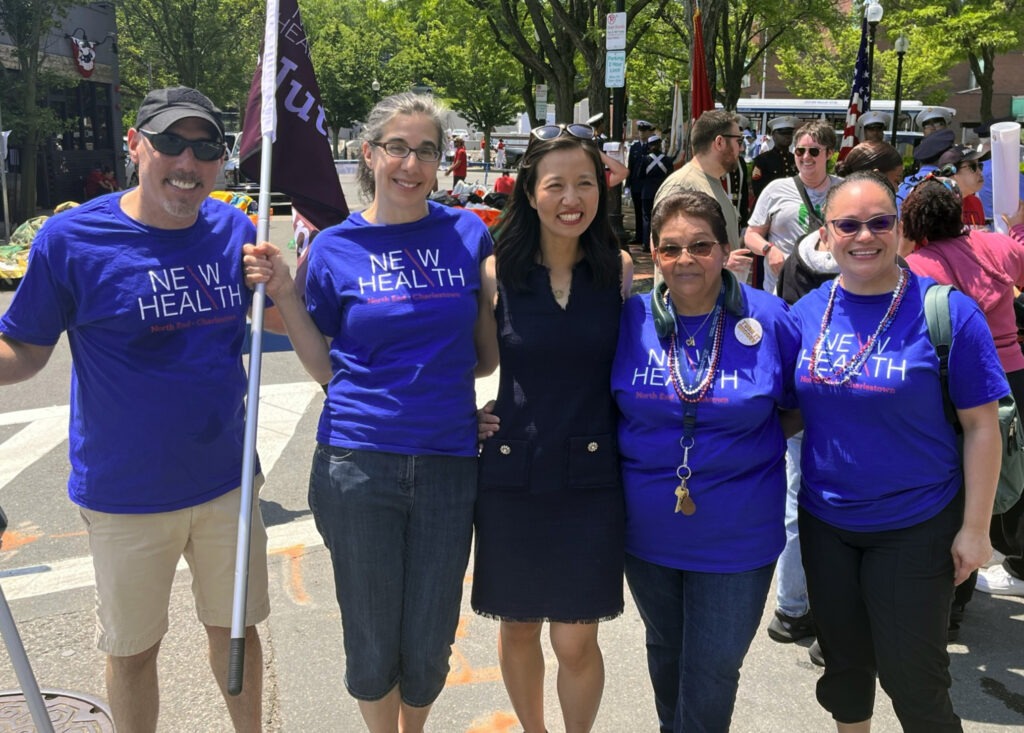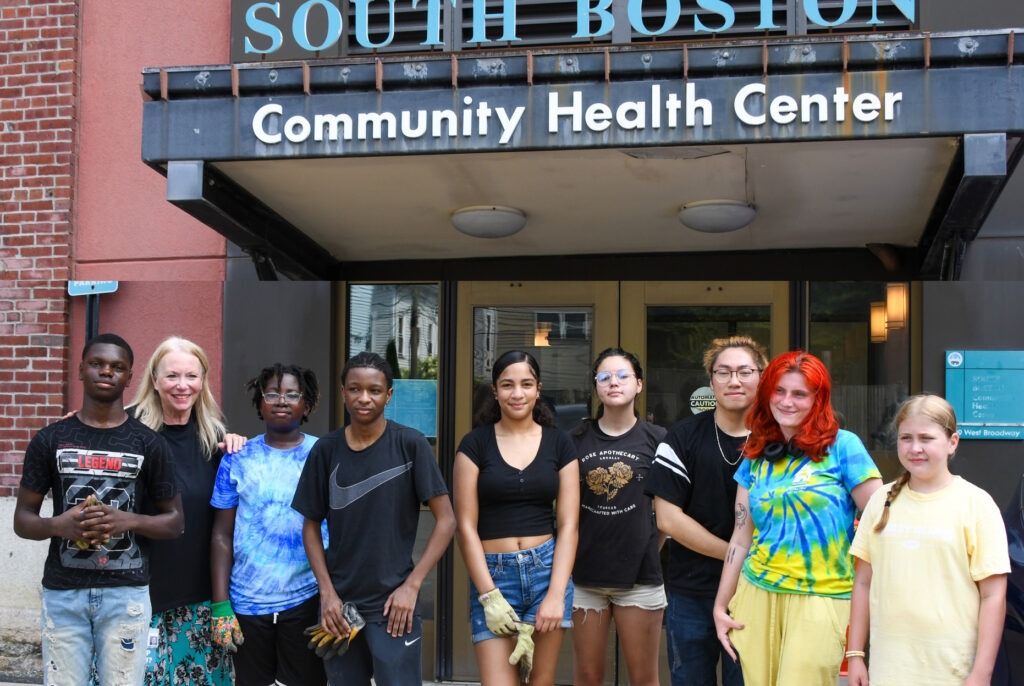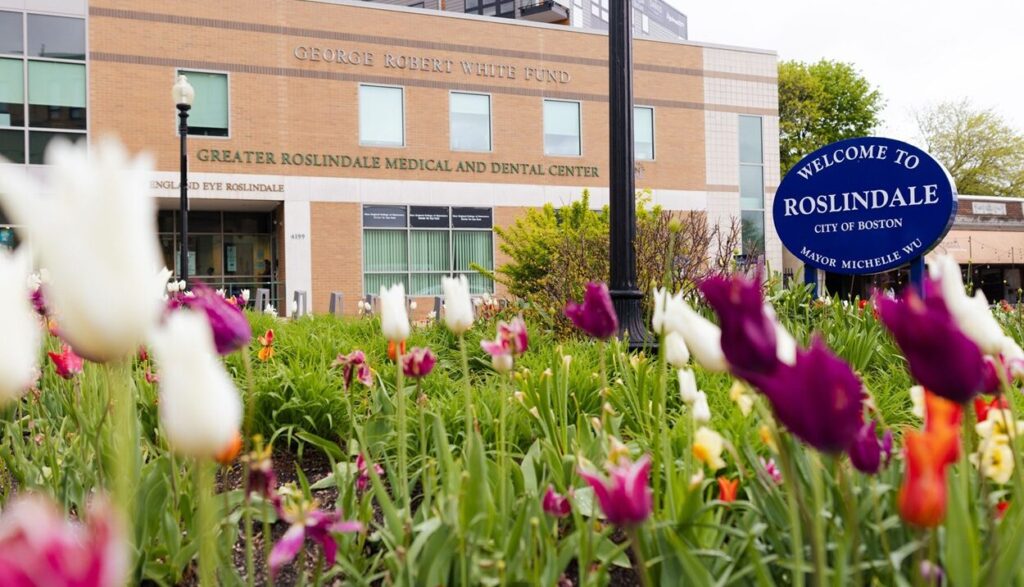

Home » Community Health/Hospital Partnerships
New England College of Optometry (NECO) has established a unique and impactful relationship with community health centers across Massachusetts, many of which serve as a vital training ground for NECO students. This partnership allows NECO students to gain hands-on experience in diverse, real-world settings where they can apply their clinical knowledge and skills under the supervision of experienced professionals.
Instead of waiting for patients to visit us, we go to them directly in their communities. This collaboration with community health center partners enriches the educational experience of NECO students and contributes to the delivery of essential eye care services in underserved communities. This fosters a sense of social commitment and community engagement among the next generation of optometrists. We recently celebrated over 50 years of direct partnerships with community health centers to reduce visual health disparities. Read more about our community heatlhcare partnerships.
MEET OUR CORE COMMUNITY HEALTH CENTER PARTNERS
Since 1972, NECO has partnered with our core health center partners by providing optometric faculty to operate the eye care departments of these community sites. Our students are assigned to learn from the doctors and assist in providing vital access to visual health services in an interprofessional healthcare setting.
Charles River Community Health
CHARLES RIVER COMMUNITY HEALTH
SERVICES AVAILABLE
Comprehensive Eye Care, Contact Lens Services, Myopia Control, Pediatric Optometry, Optical Shop
ABOUT CHARLES RIVER HEALTH
Charles River Community Health‘s mission is to improve the health and well-being of Allston, Brighton, Waltham, and surrounding areas by providing quality, comprehensive, coordinated care that is patient-centered, family-friendly, and community-focused. Since its opening in 1974, it has remained true to its mission and has evolved to reflect the needs of its patients and surrounding communities. CRCH contracts with NECO so our faculty and students can fully operate the optometry department.

CLINICAL DIRECTOR
Dr. Hilary Gaiser
Codman Square Health Center
CODMAN SQUARE HEALTH CENTER
SERVICES AVAILABLE
Comprehensive Eye Care, Contact Lens Services, Myopia Control, Pediatric Optometry, Optical Shop
ABOUT CODMAN SQUARE HEALTH CENTER
Codman Square Health Center (CSHC) is a community-based, outpatient healthcare and multi-service center in the heart of Dorchester. They offer comprehensive care for the entire family, including primary, eye, dental, urgent, behavioral health care, and many medical specialties. In addition, they are a community organization that provides financial and wellness programming. CSHC opened its doors in 1979 and grew from two physicians to a staff of more than 300 multilingual and multicultural expert clinicians, medical staff, and employees. CHSC has partnered with NECO, so our faculty and interns can join their eye care department.
The Dimock Center
SERVICES AVAILABLE
Comprehensive Eye Care, Contact Lens Services, Myopia Control, Pediatric Optometry, Low Vision Services, Specialty Contact Lens, Optical Shop
ABOUT THE DIMOCK CENTER
The Dimock Center was founded in 1862 as the New England Hospital for Women and Children and was the first hospital in New England opened and operated by women, for women. The Dimock Center provides over 19,000 patients convenient access to high-quality, low-cost healthcare and human services annually. The health services program delivers comprehensive health care for adults and children with specialized clinics, including women’s health and OB/GYN, HIV/AIDs, eye care, and dental care. The Dimock Center was one of the first two sites to partner with NECO in 1972, and we are contracted to allow our faculty and students to operate the optometry department fully.
 CLINICAL DIRECTOR
CLINICAL DIRECTOR
Dr. Nicole D. Pogue
NeighborHealth
NEIGHBORHEALTH
(formerly East Boston Neighborhood Health Center)
SERVICES AVAILABLE
Comprehensive Eye Care, Contact Lens Services, Low Vision Services, Optical Shop
ABOUT NEIGHBORHEALTH
Since its launch in 1970, NeighborHealth (formerly East Boston Neighorhood Health Center) has operated 24 hours a day, seven days a week. Today, it is the only health center in New England (and one of the few in the country) to provide continuous care. The health center increased to meet demand, and community members could finally receive quality medical care in their neighborhoods. NeighborHealth partners with NECO for our clinical internship program and our faculty.
Holyoke Health Center
SERVICES AVAILABLE
Comprehensive Eye Care, Vision Rehabilitation and Low Vision Services, Optical Shop
ABOUT HOLYOKE HEALTH CENTER
Holyoke Health Center (HHC) is a federally qualified community Health Center located in Holyoke, Massachusetts, with additional locations throughout Hampden County. They have provided low-cost medical, dental, and pharmaceutical services in English and Spanish to the Holyoke, Chicopee, and surrounding communities for over 50 years. They firmly believe that every person deserves high-quality healthcare and are committed to developing resources with their partners, the state and federal government, and community members to deliver that mission. HHC partners with NECO so our faculty and students can operate their Vision Center. CLINICAL DIRECTOR
CLINICAL DIRECTOR
Dr. Megan Filadelfo
Lynn Community Health Center
SERVICES AVAILABLE
Comprehensive Eye Care, Contact Lens Service, Pediatric Optometry and Ophthalmology, Low Vision Services, Optical Shop
ABOUT LYNN COMMUNITY HEALTH CENTER
Lynn Community Health Center (LCHC) is a non-profit, multicultural community health center. LCHC uses an innovative, integrative care model called a “patient-centered medical home,” designed to respect each patient’s unique needs. LCHC is committed to social justice and reducing barriers to care. The staff reflects the diversity within the community, and the health center provides care in many languages and with respect for all cultures. LCHC partners with NECO so our faculty and students can fully operate the center’s optometry department. CLINICAL DIRECTOR
CLINICAL DIRECTOR
Dr. Daniel Bastian
Martha Eliot Health Center
MARTHA ELIOT HEALTH CENTER
SERVICES AVAILABLE
Comprehensive Eye Care, Contact Lens Service, Myopia Control, Pediatric Optometry, Optical Shop
ABOUT MARTHA ELIOT HEALTH CENTER
Boston Children’s Hospital has operated Martha Eliot Health Center in the vibrant Boston neighborhood of Jamaica Plain for the past five decades. Boston Children’s Hospital at Martha Eliot has provided health care and improved the health of countless children and young adults. Martha Eliot embraces the patient-centered medical home concept, meaning it delivers care based on each child’s distinct needs. Boston Children’s partners with NECO so that our faculty and students can fully operate the Center’s optometry department. CLINICAL DIRECTOR
CLINICAL DIRECTOR
Dr. Joyce Chien
NEW (North End Waterfront) Health
NEW (NORTH END WATERFRONT) HEALTH
SERVICES AVAILABLE
Comprehensive Eye Care, Contact Lens Service
ABOUT NORTH END WATERFRONT (NEW) HEALTH
NEW (North End Waterfront Health) is an affiliate of Massachusetts General Hospital and Boston Medical Center. It extends its world-renowned healthcare services to people who live and work in and around Boston’s North End and Charlestown neighborhoods. Working closely with schools, senior centers, and many other organizations has shaped its services to benefit the community’s diverse population. NECO faculty and students operate NEWH’s optometry department in its North End and Charlestown locations.
 CLINICAL DIRECTOR
CLINICAL DIRECTOR
Dr. Crystal Lewandowski
South Boston Community Health Center
SOUTH BOSTON COMMUNITY HEALTH CENTER
SERVICES AVAILABLE
Comprehensive Eye Care, Contact Lens Service, Optical Shop
ABOUT SOUTH BOSTON COMMUNITY HEALTH CENTER
South Boston Community Health Center (SBCHC) has been providing world-class health care for over 40 years in South Boston. Their services include adult medicine, pediatrics, family medicine, dental, optometry, and pharmacy. They also offer many specialty services, including dermatology, podiatry, pulmonology, and cardiology. They currently deliver these services from a beautiful two-building facility in the heart of the neighborhood. SBCHC partners with NECO for our faculty and clinical internship program to operate their eye care department. CLINICAL DIRECTOR
CLINICAL DIRECTOR
Dr. Meng Meng Xu
Greater Roslindale Medical & Dental Center
GREATER ROSLINDALE MEDICAL & DENTAL CENTER
Greater Roslindale Medical & Dental Center is a nonprofit started by residents in 1975 in response to a lack of health services in their communities. In 1977, the health center opened its doors as the Greater Roslindale Medical and Dental Center with a mission to offer accessible and affordable comprehensive primary care services to Roslindale, West Roxbury, and Hyde Park residents. GRMDC contracts with NECO to provide eye care to the Roslindale community.
What is the greatest lesson you’ve learned during your rotation at a Community Health Center?
I have learned many lessons while working at community health centers. The most important is the importance of establishing trust by effectively communicating with your patients. My patients may not know English, which can be very daunting, so taking a few extra minutes to make the patient feel comfortable makes a big difference. When possible, I try to communicate with patients in their native language and make an effort to understand their thoughts and experiences.
– Purva Atreay, Class of 2025 at New England College of Optometry
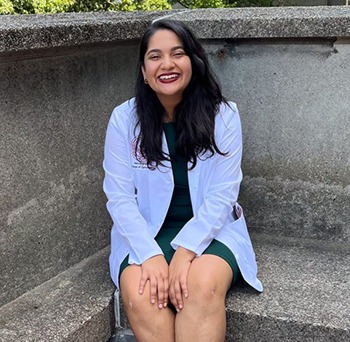
AFFILIATED COMMUNITY HEALTH CENTERS
Cape Cod Community Health Center
Dot House Health Center
Fenway Community Health Center
Lowell Community Health Center
Manet Community Health Center
Providence Community Health Centers
South End Community Health Center
Uphams Corner Health Center
HOSPITAL AFFILIATIONS
Tufts Medical Center
Boston Children’s Hospital
Boston Medical Center
VA MEDICAL CENTERS
Boston
Bedford
Manchester
Providence
COMMUNITY PARTNERSHIPS & OUTREACH
Vision Screening Request
DISABILITY SERVICES
New England Eye at Perkins School for the Blind
Cotting School
New England Eye Southeastern MA, SEMA
LOW VISION & GERIATRIC SERVICES
Boston University Eye Associates, Brockton
Elder Service Plan of Harbor Health (Mobile Care)
Upham’s Elder Service Plan


